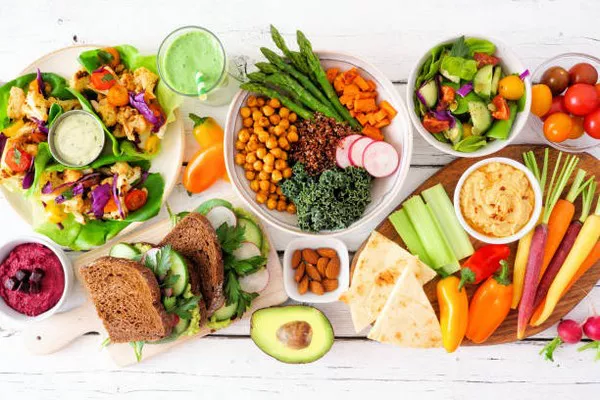Understanding the concept of “pure protein” involves delving into the realm of nutrition, where the quality and composition of protein-rich foods play a pivotal role in overall health and wellness. This article navigates the landscape of foods that epitomize pure protein, exploring sources that provide optimal amino acid profiles, minimal additives, and maximum nutritional benefits. From animal-based to plant-based options, the pursuit of pure protein involves making informed choices that align with individual dietary preferences, health goals, and ethical considerations.
Animal-Based Sources: Pinnacle of Pure Protein
When it comes to animal-based sources, certain foods stand out as the pinnacle of pure protein. Among these, lean meats take center stage. Skinless poultry, such as chicken and turkey breast, exemplifies pure protein, offering high-quality amino acids with minimal fat. Similarly, fish, especially varieties like cod, haddock, and tilapia, provides a pure protein source rich in essential omega-3 fatty acids. Eggs, particularly egg whites, are renowned for their complete protein profile, making them a staple for those seeking pure protein without the additional fat content found in egg yolks.
Dairy Delights: Pure Protein from Milk Products
Dairy products are another category that contributes to the roster of pure protein foods. Milk, whether in its liquid form or as derivatives like yogurt and cheese, is a complete protein source. Greek yogurt, in particular, is celebrated for its high protein content and minimal additives, making it a favored choice among those emphasizing pure protein in their diets. Cottage cheese is another dairy delight, providing a rich source of protein with relatively low levels of fat. Incorporating these dairy-based options ensures a diverse and nutrient-rich intake of pure protein.
Poultry Power: Pure Protein in Chicken and Turkey
Poultry, with its emphasis on lean cuts, is a powerhouse of pure protein. Chicken breast, in particular, is hailed as a lean protein source, delivering essential amino acids without the excess fat found in darker cuts or with the skin attached. Turkey, especially the lean breast meat, mirrors the protein excellence of chicken, offering a versatile option for those seeking pure protein in their meals. Grilled, baked, or roasted, these poultry options epitomize a clean and protein-packed dietary choice.
Fish Finesse: Optimal Protein in Seafood
Seafood takes the spotlight in the pursuit of pure protein, with an array of fish and shellfish options offering exceptional nutritional benefits. Salmon, a fatty fish rich in omega-3 fatty acids, combines pure protein with heart-healthy fats. Tuna, whether fresh or canned, is a convenient and pure protein source that pairs well with salads or sandwiches. Cod and haddock represent lean white fish options, providing high-quality protein without the added fats found in oily fish. Incorporating seafood into the diet not only diversifies protein intake but also ensures a rich supply of essential nutrients.
Egg Excellence: The Versatility of Pure Protein
Eggs, often referred to as nature’s perfect food, are a versatile and complete source of pure protein. While whole eggs offer a balance of protein and healthy fats, those focused on maximizing pure protein often turn to egg whites. Egg whites contain all the essential amino acids without the cholesterol found in yolks, making them an ideal choice for individuals seeking pure protein without additional dietary components. From omelets to protein shakes, eggs and egg whites can be seamlessly integrated into a variety of dishes.
Plant-Based Purity: Elevating Protein with Plant Sources
For those embracing a plant-based or vegetarian lifestyle, the pursuit of pure protein takes a different but equally rewarding path. Several plant-based sources showcase the purity of protein without the inclusion of animal products. Legumes, including lentils, chickpeas, and black beans, are rich in protein and offer a versatile foundation for various dishes. Quinoa, a grain often hailed as a complete protein, provides all nine essential amino acids. Tofu and tempeh, both derived from soybeans, are prized for their protein content and the versatility they bring to plant-based cuisine.
Nut and Seed Nobility: Pure Protein from Nature’s Bounty
Nuts and seeds emerge as nutritional powerhouses, offering a combination of healthy fats, fiber, and, importantly, pure protein. Almonds, walnuts, and pistachios provide a protein-packed snack option, contributing to satiety and overall nutritional balance. Chia seeds and hemp seeds, in addition to their omega-3 fatty acids, offer a concentrated source of pure protein. Pumpkin seeds, commonly known as pepitas, are a protein-rich addition to salads, yogurts, or simply enjoyed as a standalone snack. The incorporation of nuts and seeds into the diet not only enhances protein intake but also contributes to a well-rounded nutritional profile.
Legume Legacy: Pure Protein in Beans and Peas
Legumes, encompassing a diverse array of beans and peas, form a critical component of pure protein in plant-based diets. Black beans, kidney beans, and pinto beans are not only rich in protein but also fiber, making them a nutrient-dense choice. Chickpeas, a staple in many cuisines, provide a versatile source of protein and are the primary ingredient in popular dishes like hummus. Lentils, whether brown, green, or red, offer a protein-packed foundation for soups, stews, and salads. The legume legacy showcases the pure protein potential inherent in these plant-based sources.
Soy Supremacy: Comprehensive Protein in Soy Products
Soy products, derived from soybeans, emerge as champions of pure protein in the plant-based realm. Tofu, made from coagulated soy milk, is a versatile ingredient that absorbs flavors and serves as a protein-rich base for various dishes. Tempeh, another soy-based product, undergoes fermentation, resulting in a nutrient-dense and protein-packed food. Edamame, young soybeans, provides a protein-rich snack or a side dish. The completeness of soy protein, containing all essential amino acids, positions it as a comprehensive and pure protein source for those following a plant-based diet.
Dairy Alternatives: Navigating Pure Protein in Plant-Based Milks
The surge in popularity of plant-based diets has led to the development of various dairy alternatives, each offering its unique take on pure protein. Almond milk, soy milk, and pea milk are among the options that provide a plant-based source of protein. While these alternatives may not match the protein content of cow’s milk, fortified versions can offer a comparable protein boost. When selecting plant-based milk, it’s essential to consider factors like protein content, added sugars, and fortification to ensure a pure protein choice that aligns with individual nutritional goals.
Protein Powders: Concentrated Purity for Convenience
In the realm of convenience and supplementation, protein powders play a prominent role in delivering concentrated and pure protein. Whey protein, derived from milk, is one of the most popular choices due to its complete amino acid profile and rapid absorption. Casein protein, also from milk, provides a slower release of amino acids, making it suitable for sustained protein intake. Plant-based protein powders, such as pea protein, rice protein, and hemp protein, cater to individuals with dietary restrictions or those seeking a vegan-friendly option. Protein powders offer a versatile and efficient way to augment protein intake, especially for those with specific dietary requirements or busy lifestyles.
Considerations for Purity: Beyond Protein Content
While focusing on pure protein is essential, it’s equally important to consider other factors that contribute to the overall nutritional quality of foods. Whole, minimally processed foods not only provide pure protein but also bring additional nutrients, including vitamins, minerals, and phytonutrients. Additionally, considering the overall macronutrient composition, such as the presence of healthy fats and fiber, contributes to the balanced nutritional profile of a food item. Choosing foods with minimal additives, preservatives, and excessive processing aligns with the pursuit of pure protein in the context of a wholesome and healthful diet.
Optimizing Protein Intake: Balancing Sources for Comprehensive Nutrition
Achieving optimal protein intake involves balancing sources to ensure a comprehensive and well-rounded nutritional profile. Combining animal-based and plant-based protein sources allows individuals to benefit from a spectrum of amino acids, vitamins, and minerals. For example, a meal that includes lean chicken breast, quinoa, and a variety of vegetables provides not only pure protein but also a diverse array of nutrients essential for overall health. Considering individual dietary preferences, ethical choices, and nutritional needs contributes to a personalized and sustainable approach to optimizing protein intake.
Individualization and Dietary Preferences: Crafting a Pure Protein Path
The pursuit of pure protein is inherently linked to individual dietary preferences, ethical considerations, and health goals. Whether one chooses animal-based sources, plant-based alternatives, or a combination of both, the key lies in crafting a dietary path that aligns with individual values and preferences. Some individuals may thrive on a predominantly carnivorous diet, emphasizing lean meats and fish, while others may find fulfillment in a plant-based lifestyle rich in legumes, nuts, and seeds. Recognizing the diverse ways in which individuals approach nutrition allows for a personalized and sustainable journey towards pure protein consumption.
Conclusion
In conclusion, the pursuit of pure protein is a journey woven into the fabric of nutritional wisdom, offering a pathway to nourishing the body with optimal amino acids and essential nutrients. From animal-based sources like lean meats, fish, and eggs to plant-based treasures such as legumes, nuts, and seeds, the choices for pure protein are abundant and diverse. The evolving landscape of dietary preferences, coupled with a growing awareness of ethical considerations, has expanded the definition of what constitutes pure protein. Ultimately, the key lies in making informed choices, embracing the richness of nutritional variety, and crafting a dietary approach that resonates with individual values and health aspirations. Pure protein, in its myriad forms, stands as a cornerstone of holistic nourishment, supporting overall well-being and vitality.
[inline_related_posts title=”You Might Be Interested In” title_align=”left” style=”list” number=”6″ align=”none” ids=”3808,3806,3773″ by=”categories” orderby=”rand” order=”DESC” hide_thumb=”no” thumb_right=”no” views=”no” date=”yes” grid_columns=”2″ post_type=”” tax=””]
































